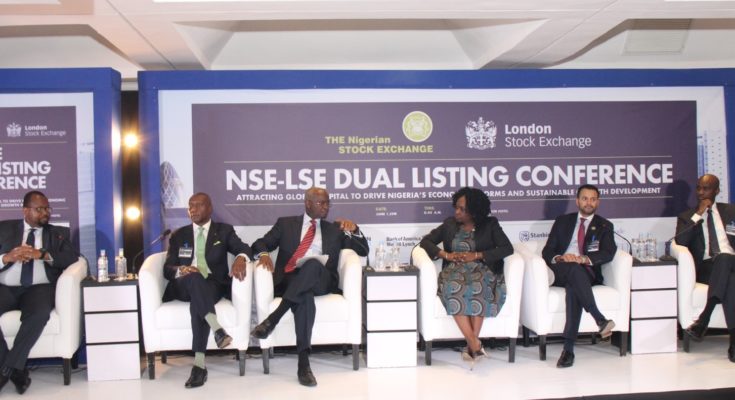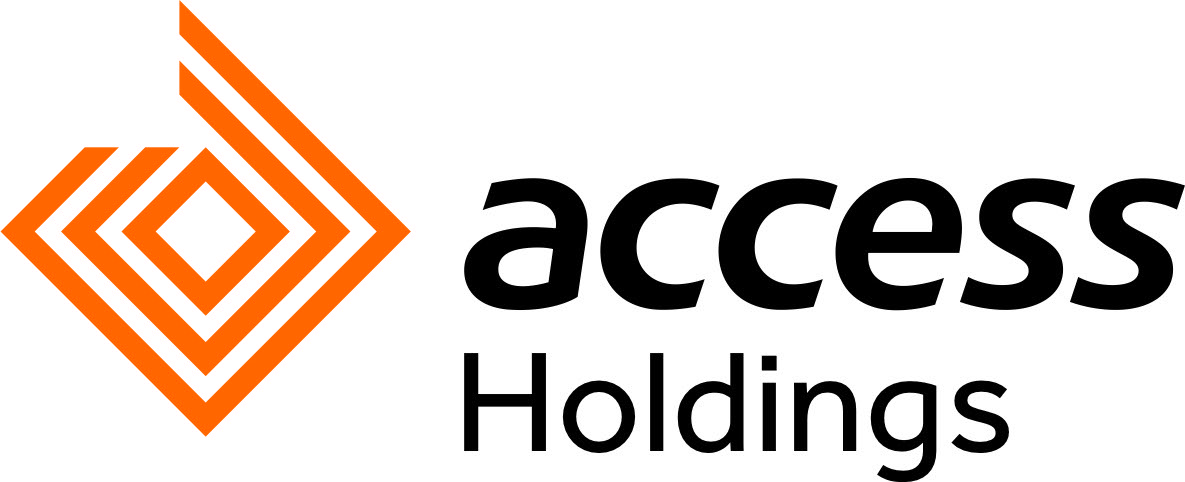Chief Executive Officer of the Nigerian Stock Exchange (NSE), Mr Oscar Onyema has shed more light on the collaboration of with the London Stock Exchange (LSE), saying it is deliberate, strategic and geared at encouraging seamless cross-border access between the two capital markets.
In his opening remarks at the 5th NSE/LSEG Dual Listings Conference, he said the alliance was to ultimately drive deeper capital markets that enable capital formation for businesses and governments; create larger liquidity pools and greater competitiveness for our investors; and enhance capacity and promote diversity of investment products to meet the needs of a wide range of investors and issuers.
“This is evidenced by the FGN Sovereign FX denominated $1 billion Eurobond on The Nigerian Stock Exchange and London Stock Exchange recently, and a strong pipeline of corporate Eurobonds,” he said.
On the performance of the NSE so far this year, he said primary markets activities had not continued the pace of resurgence saw in 2017, but that the pipeline remained strong.
“The 2017 Primary markets activities were dominated mostly by supplementary offers, listings by introduction, debt issuances, mergers and divestments. The market recorded an uptick as Equity market capitalization grew by 42.12% in 2017 closing the year at N13.62tn compared to N9.54tn in 2016. With these feat, The NSE emerged the star of Sub-Saharan Africa markets and one of the top three best performing World Federation of Exchanges’ markets of 2017 globally,” he said.
On Nigeria’s economic landscape over the last few years, he said it had been particularly challenging for the capital market as the combined effects of the 2015 national elections, slump in commodity prices, global economic slowdown, recession and FX market illiquidity had resulted in a dearth of Initial Public Offers (IPOs) in the Nigerian capital market.
“Between 2014 and 2016, capital raised on the NSE fell by c.95%, from N43.95Bn to N2.59Bn. However, in 2017 we saw a significant rebound as listing activity (IPO and Follow on offers) increased 1,622.03% from N2.59 billion in 2016 to N44.51 billion in 2017,” he said.
He noted that the Nigerian economy exited recession with a marginal growth of 0.83% in 2017 and expected to grow by 2.5% in 2018 based on the World Bank’s projections.
“This optimistic outlook is also evident in the NSE’s trading activities with cumulative transactions from January to April increasing by 114.22% from N509.38 billion recorded in 2017 to N1.091 trillion in 2018. Evidently showing that Nigeria remains top of mind on the African continent for investors!” he said
“Much of this was the result of improved macro-economic conditions driven by higher global oil prices and increased domestic oil output, as well as The Exchanges’ keen focus on strategy execution and enhanced advocacy efforts, positively impacting the business of The Exchange during the period.
“One of the Exchange’s advocacy efforts with the Federal Government in ensuring significant reforms to improve the business environment also aided the country’s move 24 places to 145th in the World Bank’s 2018 Ease of doing business report.
“The NSE also continues to increase its product offerings to the investing public with the listing of securities such as the $300m Diaspora Bonds and $3bn Eurobonds in 2017, the N100billion Federal Government Ijarah Sukuk and the Sovereign Green Bond; adding to the nation’s funding options to catalyse the rebound of our economy and offer investment alternatives to the vast majority of Nigerians. It is noteworthy to mention that Nigeria’s inaugural issue in the Green Finance market earned a credential as the first ever Sovereign issuance in Africa. This represents a new stage in development of Nigerian capital markets and opens the way for further corporate issuance and international investment. The NSE is playing a key role to help develop this enormous opportunity for Nigeria and fulfil one of our key objectives as a member of the UN Sustainable Stock Exchange Initiative.”
On the theme of the conference, “Attracting Global capital to drive Nigeria’s Economic Reforms and sustainable Growth”, he it was quite topical for Nigeria as the Government grappled with the task of articulating a clear economic blue print for the short to midterm within which credible fiscal and monetary policies can emerge, the reality of the need to leverage and embrace the globalisation of economies and financial markets becomes clearer.
“Capital Markets are critical to sustainability of growth and development in an Economy. It is my strong belief that one of the things that Nigeria (and Africa) needs to sustain its growth, is a solid and vibrant capital market ecosystem that will attract investment and unlock the potential that exists in the economy. Just yesterday, the NSE ASI witnessed a reversal of all the gains made in 2018 and is currently down 0.36%. Since the market is a leading indicator, we cannot take our eyes off the ball and must continue to press for positive catalysts that will propel the economy to new heights,” he said.














